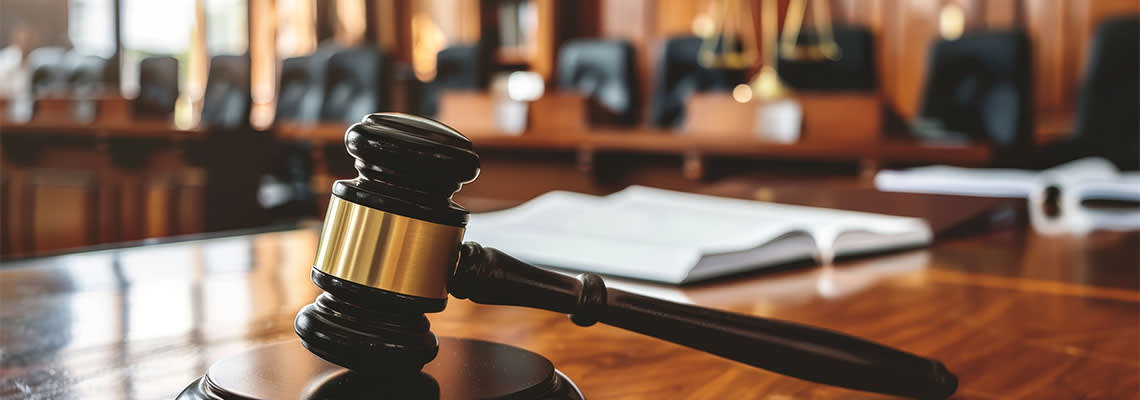
How Appellate Attorneys Evaluate Cases for Appeal
After a tough trial, questions often arise about whether a case can be appealed. That moment—when the dust settles and a verdict has been entered—is when appellate work begins. For those involved in a personal injury lawsuit, the answer isn’t always simple. Appeals aren’t about trying again. They’re about reviewing the trial court’s decisions for legal errors.
As an appellate attorney based in Chillicothe, Ohio, the goal is to determine if the court applied the law correctly and whether any missteps justify a higher court’s intervention. The process is methodical, focused, and grounded in the record—not emotion. Learn more from me at Sigall Law Firm.
Starting With a Notice of Appeal
Filing a notice of appeal may appear to be the first step, but the true starting point is evaluating whether there’s legal ground for appeal. Not every unfavorable outcome reflects a reversible error. The focus is on whether the court’s decision was legally flawed and if that error likely influenced the final result.
Emotions understandably run high after a difficult trial. Still, appellate work begins with objectivity. Identifying potential errors in how the law was applied is a foundational part of the assessment process.
Reviewing the Trial Record
The appellate court doesn’t consider new evidence or testimony. It reviews the existing trial record—nothing more. That’s why every appeal evaluation begins with a close reading of the trial transcripts, motions, rulings, exhibits, and jury instructions. The goal is to identify any legal mistakes that may have occurred during trial proceedings.
If something wasn’t recorded in the trial documents, it can’t be argued on appeal. A thorough review makes sure that any potential issues are firmly supported by what’s already on file. This part of the process requires time, patience, and attention to detail.
Spotting Preserved Errors
To be considered on appeal, an error must usually be “preserved.” In other words, the trial attorney must have objected to the issue when it happened and made the court aware of the concern.
Some unpreserved errors can still be reviewed under the “plain error” rule, but that’s a narrow exception. In most cases, the appeal depends on what was raised at trial. If the objection wasn’t made at the right time or in the right way, the court may refuse to consider it.
It’s common to consult with the trial lawyer to determine whether preservation was handled properly. Collaborating with trial counsel helps clarify the full scope of what occurred and whether there’s a legal path forward.
Evaluating Harm and Standard of Review
Even when an error is identified and properly preserved, the analysis doesn’t stop there. An appellate court will only reverse a decision if that error had an actual effect on the outcome. This is often referred to as the concept of “harm.”
At the same time, the applicable standard of review matters. Different legal issues are reviewed under different lenses. Some receive considerable deference, such as factual findings. Others, like pure legal questions, are reviewed without any deference to the trial court’s decision.
Understanding the standard of review helps clarify whether the appellate court is likely to engage with the issue or defer to the original ruling. This is one of the key elements in determining whether the case is appealable in a meaningful way.
Considering the Client’s Goals
The decision to appeal isn’t purely legal—it’s also practical. Clients may have different goals depending on the circumstances. Some may want a complete reversal. Others may be seeking a new trial, a new hearing, or an adjustment in damages.
Appeals require time. In Ohio, it can take months—or more than a year—for a case to move through the appellate system. It’s important to weigh the client’s priorities and explain what the appellate process realistically involves.
When discussing an appeal, the conversation includes strategy, expectations, and options. Filing without a clear purpose or achievable goal doesn’t serve the client’s interests. It’s about determining whether a legal argument has enough weight to justify the time and cost.
Writing a Strong Appellate Brief
Once a case moves forward, the appellate brief becomes the core of the argument. This document lays out the issues, explains how the trial court erred, and supports those claims with citations from the record and relevant legal precedent.
The brief isn’t a second trial. There’s no storytelling, no witness persuasion—just legal reasoning and structured analysis. A compelling appellate brief must be clear, concise, and deeply rooted in the facts as they were presented at trial.
Anticipating counterarguments from the opposing side is another key part of brief writing. A strong appellate attorney addresses those arguments proactively, reducing their force before they even appear in the response.
Preparing for Oral Argument
If oral argument is granted, it provides a limited but valuable opportunity to speak directly with the appellate judges. This isn’t a presentation—it’s a discussion.
Preparation involves anticipating the toughest questions, knowing the record inside and out, and being ready to pivot as needed. Appellate judges may raise issues not emphasized in the briefs, and it’s important to respond clearly and confidently.
The oral argument phase allows the appellate attorney to reinforce critical points, clarify misunderstandings, and show how the trial court’s errors impacted the case outcome.
Common Personal Injury Issues On Appeal
Personal injury appeals often involve recurring legal themes. Some of the most common include:
Fault and causation: Disputes over who caused the injury and how.
Evidentiary rulings: Key evidence that was either wrongfully excluded or improperly admitted.
Jury instructions: Improper instructions that misrepresented the law to the jury.
Damages: Award reductions or outright denials that conflict with the evidence presented.
Motion rulings: Errors in granting or denying motions to dismiss or for summary judgment.
Each of these areas presents the potential for legal mistakes that may form the basis of an appeal. But again, the mistake must be preserved, harmful, and subject to review under a favorable standard.
When an Appeal Isn’t the Right Move
Sometimes, even after a full review, the best advice is not to appeal. Legal errors might be present, but if they didn’t affect the case outcome or can’t be reviewed due to preservation problems, moving forward may not be worth it.
Clients deserve a candid assessment. It doesn’t serve anyone to pursue an appeal without a clear and viable path. Filing without a strong legal argument only creates more delay, cost, and frustration.
Turning down a case for appeal isn’t always easy, but honesty is critical. The decision has to be based on law, not emotion.
Collaborating With Trial Counsel
Appellate cases often begin with referrals from trial lawyers. Their knowledge, records, and notes help form a complete picture of what happened in court. A collaborative approach benefits everyone involved—especially the client.
Trial lawyers and appellate attorneys serve different roles. One builds the case for a jury, while the other evaluates whether the law was applied correctly afterward. When those roles work together, appeals are more targeted and efficient.
Ongoing communication with trial counsel helps confirm what was preserved, what objections were made, and whether the record supports the issues being raised.
The Value of Focused Experience
Appellate practice requires a different mindset. Instead of building a narrative for a jury, the focus shifts to statutory interpretation, legal precedent, and procedural correctness. Every word in the record matters. Every citation must hold up under scrutiny.
Years of experience handling appeals in Ohio contribute to better judgment about which issues are likely to gain traction. It’s not just about identifying errors—it’s about evaluating which errors are actionable and which are likely to lead to meaningful change.
A seasoned appellate attorney offers a perspective that helps clients avoid wasting time on issues the court won’t address. That knowledge is critical during the evaluation stage and beyond.
Call Me Today
Appellate work isn’t about revisiting the trial—it’s about holding courts accountable to the law. Evaluating whether to appeal a personal injury case involves reviewing the record, spotting legal errors, and considering client goals. As an appellate attorney in Chillicothe, Ohio, my work is careful, honest, and entirely rooted in what the law allows. Call me at Sigall.Law today.
